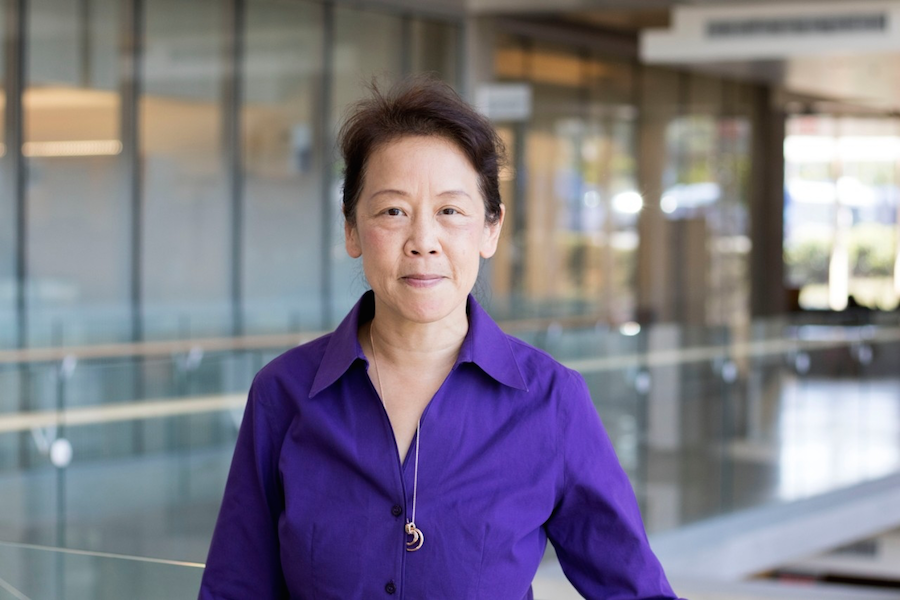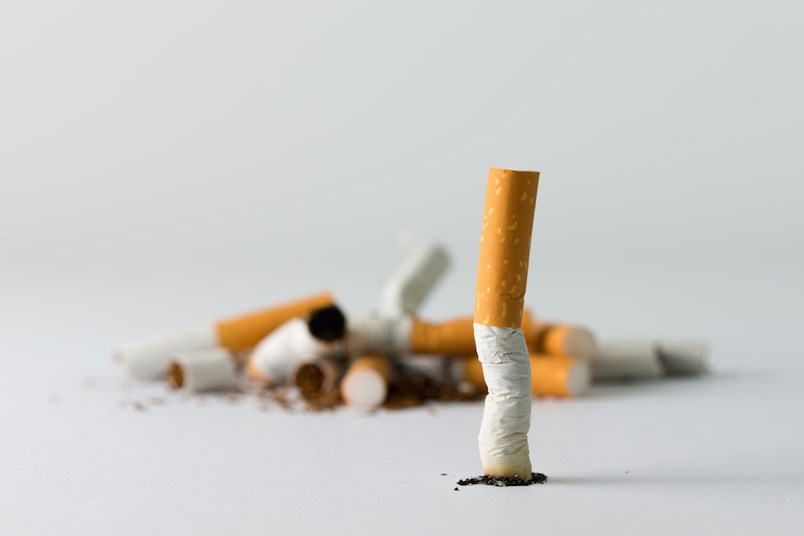If there ever was a good time to quit smoking and vaping, now is that time, says public health researcher Dr. Kelley Lee of Simon Fraser University.
Smokers and vapers are not just at a greater risk of having more serious complications from COVID-19; they are less likely to receive a ventilator in short supply.
“Anything that compromises your lung capacity is not wise at this time,” said Lee.
“By quitting smoking you’re probably going to increase your chances of being one of the people who gets a ventilator, for sure. I don’t think we’ve ever been in this situation where we have to make decisions so starkly,” as doctors have been doing in Italy and New York, said Lee.
“There’s going to be choices down the line if we don’t flatten the curve. It comes down to weighing who will fare better,” from receiving help from equipment that is in short supply, said Lee.
Age, health history and other considerations come into play for who gets what care. If someone’s lungs are not at full capacity due to smoking or vaping, they may be passed up in a worse case scenario, said Lee.
There are concerns about the association between COVID-19 and tobacco use. “There is emerging evidence that link those two things,” said Lee, suggesting smokers and vapers will have more severe illness from COVID-19. “They might have compromised lung capacity making it a more serious impact. This means they are less likely to have a mild case of illness.”
The B.C. Lung Association cites studies from China showing Chinese patients, who contracted COVID-19 and who have a history of smoking, were 14 times more likely to have disease progression and/or die. Overall, smokers are more likely to contract bacterial or viral infections, the association states.
Of course, while Canadian provinces, including B.C., license and tax sales of tobacco and vapour products, sales persist during the deadly respiratory illness pandemic.
Lee said while it may seem counterproductive to continue sales of cigarettes and vaporizers, nicotine addiction and withdrawal can be “cruel.”
So, Lee said, banning cigarette and vaporizer sales is not the way to go. Smokers need positive support from society and many will get products on the black market.
“And there’s all sorts of risks to that,” Lee added.
As such, government needs to step up its game in helping people quit inhaling these products during the pandemic, said Lee.
“People currently smoking or vaping should be supported to quit now to give their lungs the best chance of fighting off this coronavirus if infected. If the government wants to be helpful, increasing access to nicotine replacement therapy to help people quit is a far better way to go. This would also contribute towards flattening the curve by reducing the likelihood that smokers and vapers will get seriously ill and need to rely on our overstretched health system,” said Lee.
The B.C. Ministry of Health operates the BC Smoking Cessation Program, which covers 100% of the cost of nicotine replacement therapy products, including specific nicotine gum, lozenges, patches and inhalers, or contributes to the cost of specific smoking cessation prescription drugs.
However, there are program limits. Each calendar year, eligible B.C. residents can only receive a single continuous course of therapy treatment for up to 12 weeks. And only low-income earners qualify for discounted prescription drugs. There is also a burdensome process of visiting a doctor for referral and registering for the program.
“So, for sure expand the cessation support to get that message out there — the link between COVID and smoking and vaping,” said Lee. “There’s kids out there vaping as well and they’re heavily addicted.”
When asked if the provincial government had intentions to expand the cessation program, Glacier Media did not receive a reply.
Last November, Health Minister Adrian Dix announced new regulations limiting nicotine in vapour pods to 20mg/ml as well as limits on public advertisements of products. It also increased the tobacco and vapour tax rates effective January 1 and a new tax for heated tobacco was planned for April 1.
However, that new tax has been shelved due to concerns businesses would be adversely affected.
“The planned April 1, 2020, effective date for this technical measure [tax] has been delayed because its implementation requires efforts by businesses, including the counting of inventory, during a time when many businesses are feeling the effects of COVID-19,” said a ministry spokesperson.
Lee said it’s the wrong decision, stressing the main focus needs to be to help people quit smoking and vaping.
 Dr. Kelley Lee/SFU
Dr. Kelley Lee/SFULee has studied tobacco control for 25 years. The professor’s research focuses on the impacts of globalization on communicable and non-communicable diseases, notably tobacco-related diseases, and the implications for strengthening global governance. She is presently researching worldwide quarantine responses to COVID-19.
“My two worlds are coming together,” she said.
Lee is a Fellow of the Faculty of Public Health, Royal College of Physicians and Fellow of the Canadian Academy of Health Sciences, according to her SFU profile.



